April 16, 2025 | 18:27 GMT +7
April 16, 2025 | 18:27 GMT +7
Hotline: 0913.378.918
April 16, 2025 | 18:27 GMT +7
Hotline: 0913.378.918
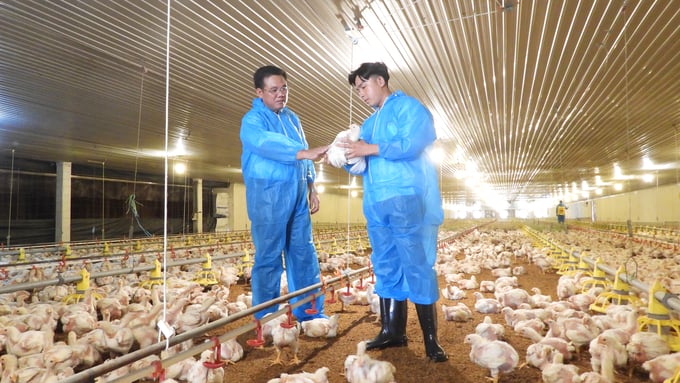
The disease-free farming area helps Phu Giao shape the livestock industry in the orientation of high-tech farms. Photo: Tran Trung.
The first place to meet disease safety standards
Phu Giao district is located in the Northeast of Binh Duong province. This place has favorable natural conditions for the development of agriculture in general and animal husbandry in particular thanks to having broad hills and narrow strips of land along the Be River.
In order to make full use of its potential and strengths, right from the very beginning, Phu Giao's perspective is to focus on building disease-free zones, creating a foundation for developing the livestock industry in the direction of farms applying high technology and industrialization associated with environmental protection.
Phu Giao has gradually restructured the livestock industry from household and small-scale livestock farming to farm-scale livestock production applying high technology. Not only large enterprises but also private farms are increasingly participating in the field of poultry farming.
Investing in science and technology in production has brought better results to livestock farmers, limiting losses caused by epidemics. Biosecurity solutions become part of a high-tech livestock and poultry production system, reducing risks while improving output and profits.
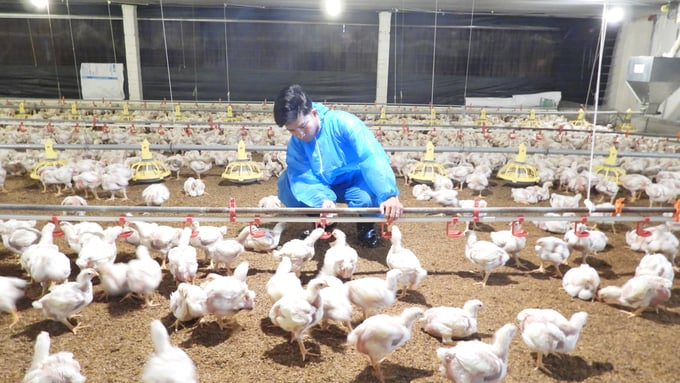
Le Duong Hanh's high-tech chicken farm is one of the farms certified for disease safety. Photo: Tran Trung.
Le Duong Hanh's high-tech chicken farm in Tan Hiep commune currently raises more than 200,000 chickens. This is one of the typical poultry farms of the locality. “In the context of epidemics in poultry flocks becoming more and more complicated, just one time of carelessness can cause billions of VND of losses, not to mention that restocking is also extremely difficult because it requires quarantine time as well as a lot of effort to completely destroy the germs of the disease,” he said.
To secure a disease-free livestock farming environment, Hanh invests in cold barns and applies a fully automatic feeding system. This helps reduce labor effort, improve accuracy, and maximize working speed. Most importantly, high technology is a great answer to environmental pollution, lowering potential treatment costs while effectively preventing the entry of diseases into the farm.
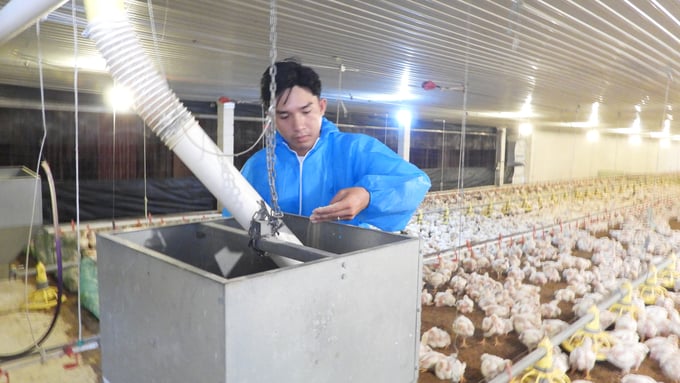
The application of an automatic food silo system limits people entering and leaving the farm, ensuring disease safety and optimizing production costs. Photo: Tran Trung.
According to Tran Minh Duc, Head of Livestock Production and Animal Health Station of Phu Giao district, in biosafe production procedures applied in animal husbandry, the commonly seen solutions include dividing farming areas for isolation and control, cleaning the farm, and performing disinfection appropriately.
Along with these methods, vaccination can be considered another biosecurity "fence" that effectively protects any poultry farm especially those of household scale. It is even more crucial when there is currently no biosafety procedure specifically described like the production procedures in industrial livestock farms. Since 2012 Binh Duong People's Committee has had a policy of free vaccination against avian influenza for small-scale livestock farms with a total herd of 2,000 poultry or less.

Tran Minh Duc, Head of Livestock Production and Animal Health Station of Phu Giao district. Photo: Tran Trung.
Phu Giao's policy at present is to export agro-products, including products from the livestock industry. If Vietnam wants to promote the export of meat and livestock products to other countries, the industry must upgrade disease-free livestock farming areas to the standards of the World Organization for Animal Health (OIE).
According to the National Plan recently approved by the Government, by 2030, Binh Duong will have 8 disease-free zones qualified for the standards of the World Organization for Animal Health with Phu Giao being the pioneer.
“To achieve the proposed roadmap, the unit has advised the district People's Committee to arrange necessary resources and organize the implementation of appropriate solutions to build and manage terrestrial animal disease-free zones. On that basis, the station focuses on inspecting, directing and providing guidance on measures to prevent cattle and poultry diseases in the district,” said Tran Minh Duc.
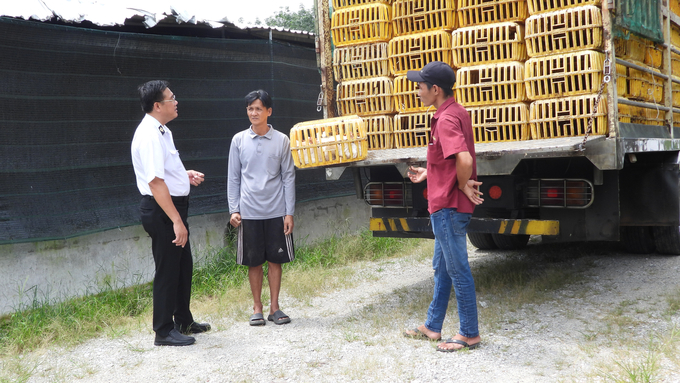
Phu Giao district’s veterinary station focuses on inspecting, inspecting, directing and guiding livestock facilities to ensure disease safety measures. Photo: Tran Trung.
The Livestock Production and Animal Health Station of Phu Giao district is going to maintain and strengthen the activities of the interdisciplinary inspection team on animal disease prevention and control at the district level. Free vaccination policies are implemented against foot-and-mouth disease, blue-ear disease, and avian influenza for small-scale livestock farming households according to regulations of the provincial People's Committee. The station also guides organizations and individuals raising cattle and poultry on a large scale to organize their own vaccinations while ensuring compliance with the requirements.
Translated by Samuel Pham
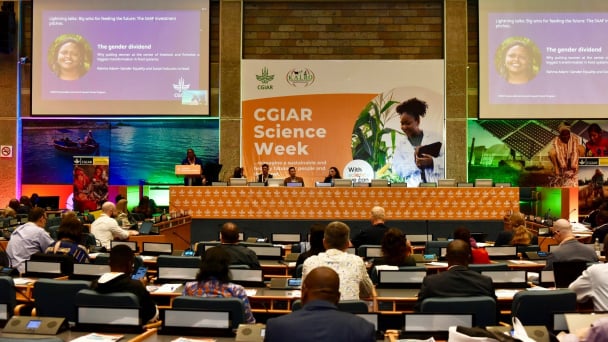
(VAN) The CGIAR’s Sustainable Animal and Aquatic Foods (SAAF) program represents a new approach that emphasizes the transformation of food systems toward sustainability.
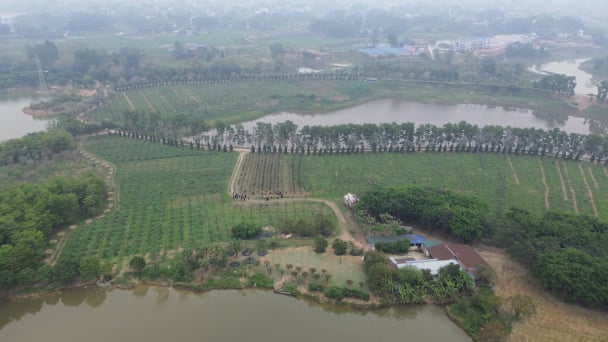
(VAN) Scientists assume that industrial agriculture has been 'outdated.' As a result, a comprehensive overhaul or a revolution in the direction of embracing ecological agriculture is needed.
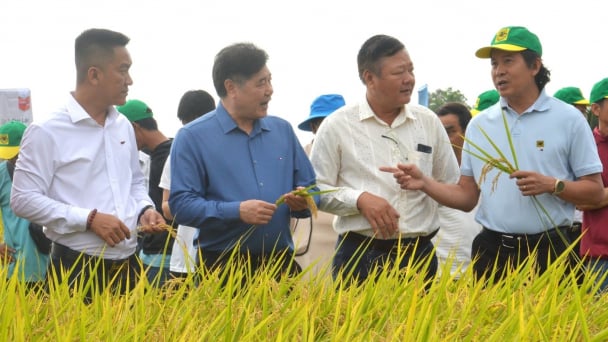
(VAN) The results from pilot fields are catalyzing the expansion of the One million hectares of high-quality, low-emission rice project in Kien Giang.
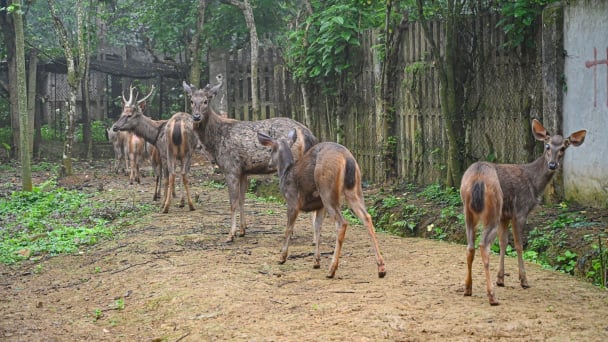
(VAN) On the morning of April 11, Cuc Phuong National Park received 18 individuals of endangered and rare wild animals from Da Nang city.
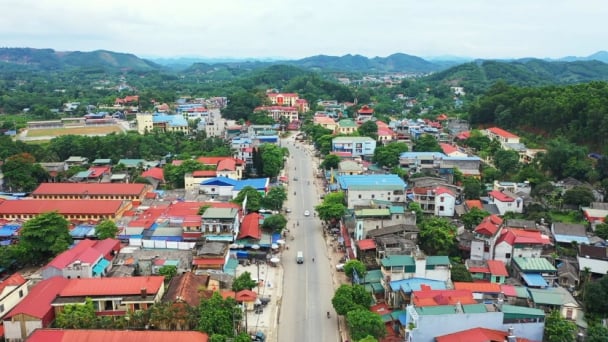
(VAN) FAO supports Vietnam in enhancing survey sampling techniques for the 2025 nationwide agricultural and rural census.
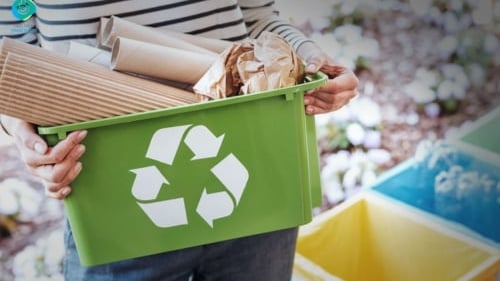
(VAN) By participating in the green transition, manufacturers become an indispensable part of the circular economy, contributing to resource optimization and environmental protection.
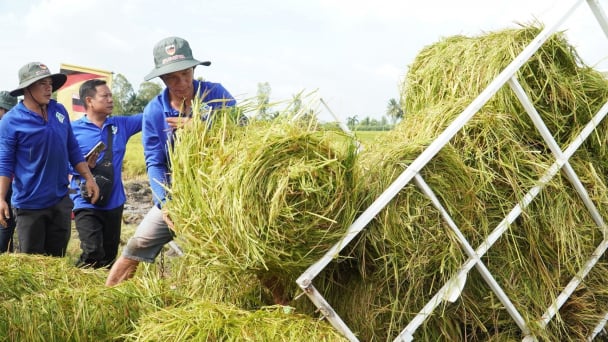
(VAN) The One Million Hectares of High-Quality and Low-Emission Rice Program can generate nearly 14 million tons of straw annually, posing an urgent requirement to diversify straw-based products.